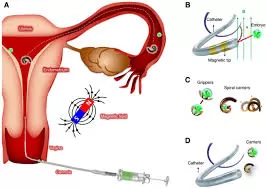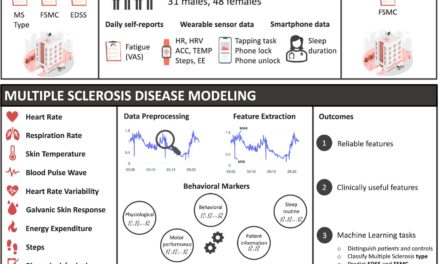Researchers at the University of Colorado Anschutz Medical Campus have discovered a potential drug candidate that could aid in restoring vision for individuals suffering from multiple sclerosis (MS) and other neurological disorders that cause neuron damage. This groundbreaking study, which was published this week in the Nature Communications journal, sheds light on a promising new treatment that may also benefit those experiencing age-related myelin degeneration.
The drug, LL-341070, works by enhancing the brain’s natural ability to repair myelin—the protective layer surrounding nerve fibers. Damage to myelin is a hallmark of MS and other neurological conditions, leading to symptoms such as vision loss, motor skill deterioration, and cognitive decline.
Researchers noted that while the brain has some innate ability to repair myelin damage, this process is typically slow and inefficient. However, LL-341070 was shown to accelerate this repair, significantly improving vision-related brain functions in mice, even after severe damage to the brain’s visual pathways.
“We are getting closer to a world where the brain can heal itself,” said Dr. Ethan Hughes, co-lead author and associate professor at the CU School of Medicine. “By harnessing this potential, we could offer hope to individuals with MS, potentially reversing some of the damage they’ve sustained and giving them the chance to regain their vision and cognitive function.”
The study’s findings indicate that LL-341070 could be particularly beneficial in situations of severe myelin damage, highlighting the importance of early intervention in cases of neurological injury. Even partial myelin repair was shown to result in notable improvements in brain functions related to vision.
Dr. Daniel Denman, another co-lead author of the study, emphasized the importance of myelin in brain function. “This study emphasizes the critical role that cortical myelin plays in visual function. The drug could be a game-changer because it accelerates the brain’s natural repair mechanisms,” he explained.
Next steps for the research team include testing the drug in other areas of the brain and further refining the treatment, with hopes that it will eventually become available to patients.
“This discovery is only the beginning,” said Dr. Hughes. “We are hopeful that LL-341070, and similar therapies, could one day provide significant benefits, improving overall brain function and quality of life for patients.”
Source: University of Colorado Anschutz Medical Campus
Journal Reference: Nunes, G. D.-F., et al. (2025). Incomplete remyelination via therapeutically enhanced oligodendrogenesis is sufficient to recover visual cortical function. Nature Communications. doi.org/10.1038/s41467-025-56092-6.
Disclaimer: The information presented in this article is based on preliminary research. The safety and efficacy of LL-341070 have not yet been confirmed in clinical trials for humans. Further studies are required to evaluate the drug’s potential for widespread use in treating multiple sclerosis and other neurological conditions.












